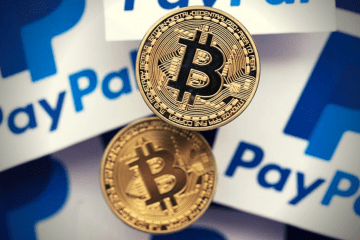Why Netflix’s Money Heist makes the case for Bitcoin
According to hardware wallet manufacturer, Ledger, Netflix’s hit series Money Heist has never been more relevant.
Season 4 of Netflix’s hit series, Money Heist—or “La Casa de Papel” in Spanish—is set to hit screens today. And according to hardware wallet manufacturer, Ledger, it’s the perfect parallel for Bitcoin and decentralization.
Money Heist features a band of anonymous robbers who target centralized finance institutions to destabilize the financial system. But Ledger claims the systems would be much more resilient if they were more decentralized.
“Security is one of the elements where centralized financial institutions can struggle,” reads the blog post. “This emerges from the simple fact that they’re a central storage space for a lot of people’s money, meaning there’s an enormous potential loot for thieves. This makes it an enticing target, and thieves know exactly where to go to steal this.”
Decentralized platforms—and by proxy, decentralized money—hold significant benefits over their centralized counterparts, Ledger claims. Primarily, within decentralized systems, individuals control their money and it’s not kept in one place by a single entity.
“Rather than storing everything in one place, decentralized systems disperse everything into a lot of different places,” explains the Ledger blog. “For finance, this can currently only be seen in cryptocurrencies. There’s not a single central authority in charge in case of a decentralized financial system.”
Ledger is, of course, making the case to store your crypto in a safe space—aka a hardware wallet. But the parallels don’t stop there.
You can’t just print Bitcoin
Governments around the world are printing money to try to keep stock markets afloat in light of the coronavirus pandemic. The Federal Reserve has been printing $1 million a second to keep the US economy going.
This process, known as quantitative easing, is referenced in the show.
“In 2011, the European Central Bank made 171 billion euros out of nothing,” says the leader of the Money Heist group in one of the episodes.
Even mainstream companies have been recognizing this—and what it means for Bitcoin. Challenger bank Revolut has brought its crypto offering to all of its seven million customers, in a direct response to massive bursts of quantitative easing around the world.
“We had planned to make this official later this year, but in light of recent events, we’ve decided to give all Revolut customers the opportunity to explore different ways of diversifying, including through crypto, right now,” a Revolut emailed stated.
What’s different about Bitcoin is that it can’t be printed at will. Hard coded into the Bitcoin blockchain is a 21 million limit to the number of coins that can be produced. Some argue this makes it a hedge against inflationary government-backed fiat currencies.
Money Heist also features cryptocurrencies in some of its episodes and it’s not the only Netflix show to do so. Altered Carbon included several well known cryptocurrencies—Bitcoin, Litecoin and even Dogecoin—in its version of the future. Does Netflix know something we don’t?


